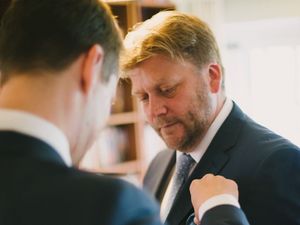Lionesses’ earnings set to soar after Euros win
Brands have flocked to the squad, with captain Leah Williamson recently signing up with Gucci and Lucy Bronze striking deals with Pepsi, EE and Visa.
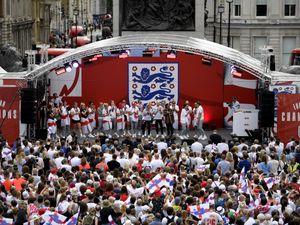
England’s Lionesses are set to make millions of pounds in sponsorship deals and endorsements following their Euro 2022 victory.
A record 17.4 million people watched the English women’s football team make history at Wembley Stadium on Sunday night by beating Germany 2-1.
But their success is just beginning, as analysts predict their earnings are on course to soar too.
Under their most lucrative deal yet with the Football Association (FA), the squad will reportedly receive a bonus of £55,000 each, totalling £1.3 million, for winning the tournament.
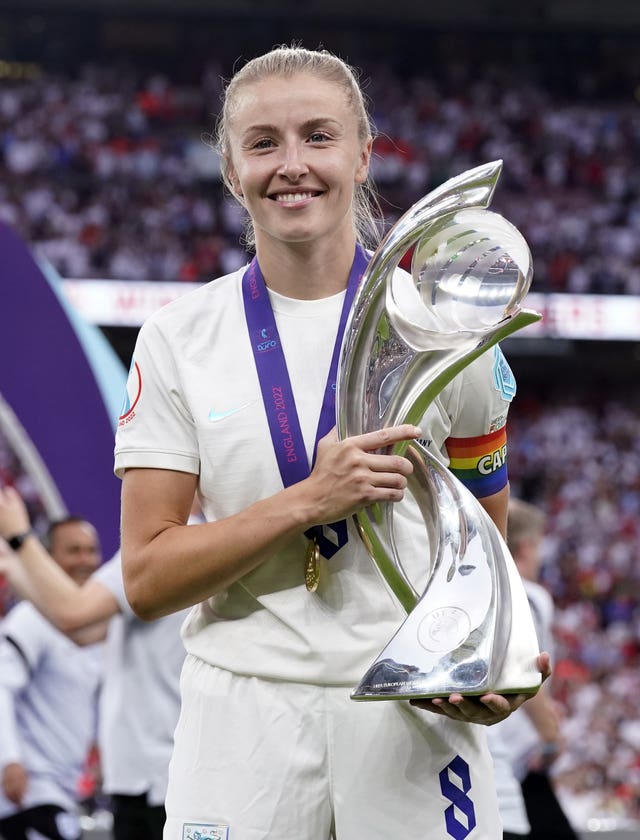
This is in addition to a reported £2,000 per match in appearance fees for the team, and the payout alone is double what most women’s club footballers make in an entire season.
Sarina Wiegman, the Lionesses head coach, is thought to be on course for a six-figure bonus in addition to her £400,000 salary.
Brands have flocked to the squad, with captain Leah Williamson having recently signed up with Gucci, the fashion giant, and right-back Lucy Bronze striking deals with Pepsi, EE and Visa.
Euro 2022 was the first time that sponsorship was offered solely for the women’s game, as opposed to being combined with the men’s team.
Uefa, the European Women’s Championship organisers, had its revenue stream boosted by up to £33 million per year through the set-up, with Visa, Heineken and Lego among the big-name companies sponsoring the tournament.
The success of these partnerships, the TV ratings and 87,000 fans packing out Wembley Stadium for the final open the door to more generous deals in future, experts say.
“The record audience figures that the Euros have attracted is a clear indicator to brands that the women’s game has now entered the mainstream,” Zoe Burton, director in Deloitte’s sports division, told the PA news agency.
“Following the tournament’s success, women’s football is likely to attract ever-more lucrative commercial and sponsorship deals which will strengthen its financial sustainability.
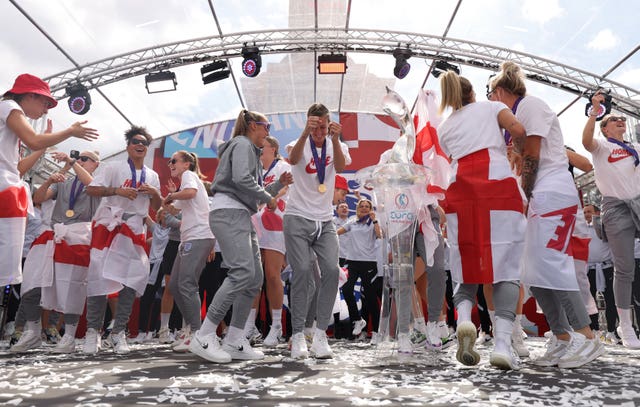
“The Lionesses’ success has created new household names and role models for the nation, with values such as tenacity and teamwork, which brands will be tripping over themselves to sign sponsorship deals with.”
BBC Sport won the contract to show Euro 2022 in Britain for a reported sum of between £8 million and £10 million, up from around £800,000 that Channel 4 reportedly paid for the previous women’s Euros in 2017, while ESPN won broadcasting rights in the US.
The 11 million average British TV audience for Sunday’s final, with a peak of 17.4 million plus five million viewers watching on BBC iPlayer, is a marked increase on the peak of four million viewers for the Lionesses semi-final defeat to the Netherlands at Euro 2017.
Annie Panter, a former Team GB Olympic hockey player who now runs sports marketing agency Two Circles, said there is “no doubt” this is a “watershed moment” to lure brands based on popularity, rather than to hit their social responsibility targets.
She said the focus is now on generating revenue for the Women’s Super League (WSL), the main UK league, which has previously had free TV deals based on guaranteed coverage.
The Lionesses’ historic win could “propel the women’s game forward towards long-term financial sustainability”, Ms Burton said, including at the grassroots by harnessing fan loyalty.
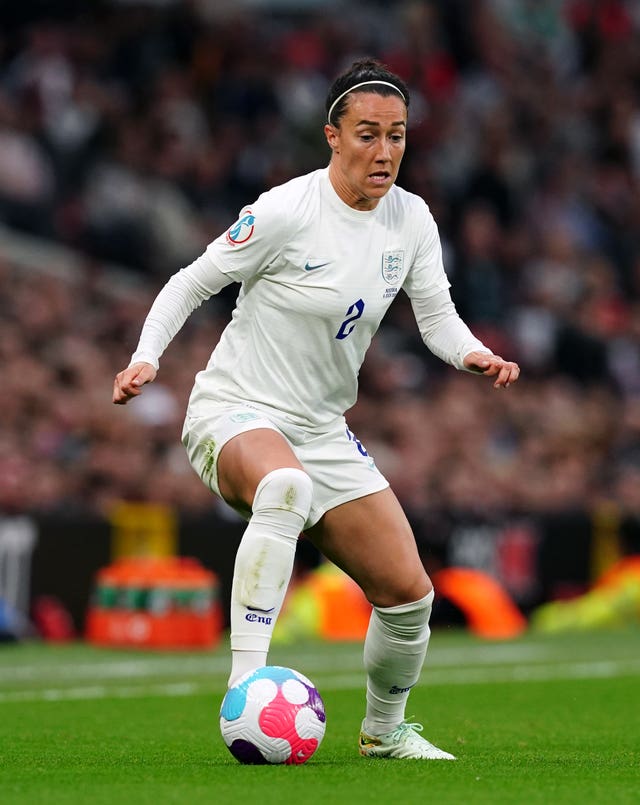
Professor Tom Cannon, an expert in sport business at the University of Liverpool, told PA: “The FA and Barclays signed a £30 million three-year sponsorship deal for the Women’s Super League in 2021 and I expect that will now treble or quadruple, not falling much short of £70 million to £90 million now.
“The male Premier League will almost certainly be pouring big sums not just into the women’s top-flight football but also down the leagues, to the clubs that were central to the development of the women’s game such as Doncaster Rovers Belles and the Millwall Lionesses.
“Over the next few years there will be a flood of new money going into the game, with any brand wanting to associate themselves with success, energy, commitment and youth – we’re talking about not just tens of millions but hundreds of millions over the next few years.
“Where I think the FA and Premier League will collaborate is in providing significant funds for girls’ football at school and college, to reduce the dropout rate when they leave school and improve changing facilities at local football grounds.”
While the FA pays women the same England match fees as men, the Lionesses’ top wage-earner at club level, Lucy Bronze, earns around £200,000 a year – the same amount some Premier League players make in a week.
The £1.3 million payout for winning the Euros is also far lower than the £5 million on offer to England’s men if they had won last summer’s Euros.



